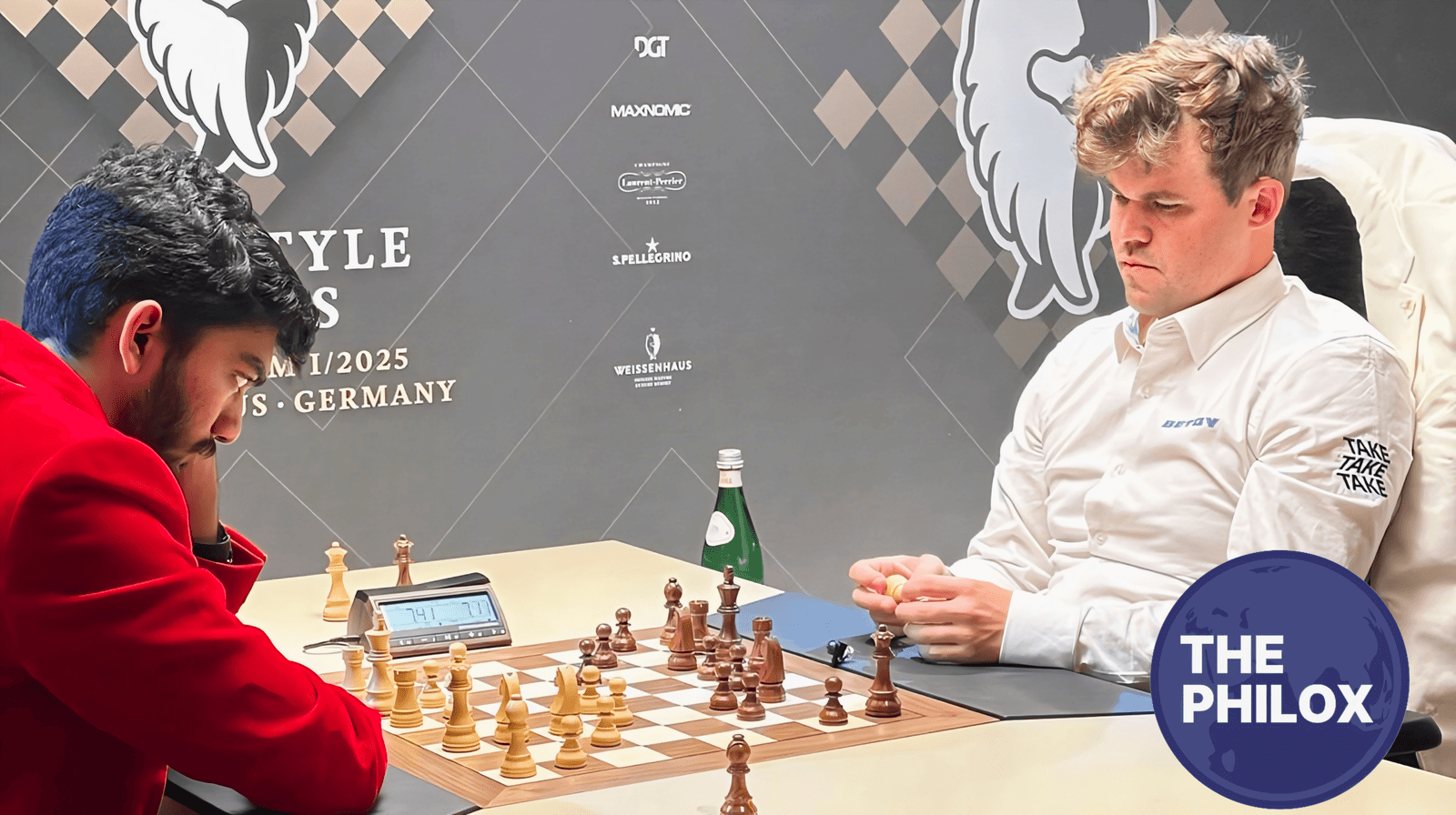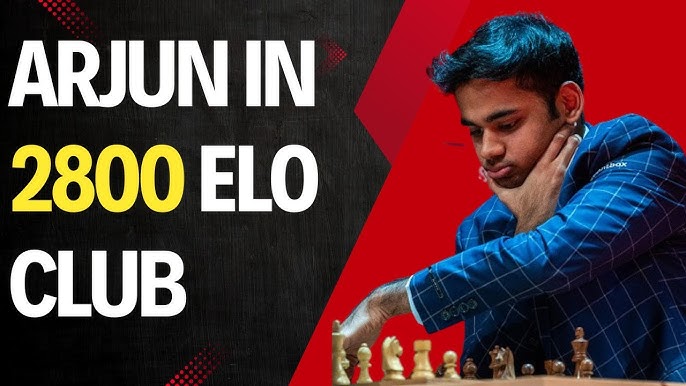D Gukesh has taken the chess world by storm, establishing himself as the youngest classical world champion and India’s number one player in standard chess.
His deep positional understanding, tactical sharpness, and endgame mastery have made him a dominant force in long-format games.
However, despite his extraordinary achievements in classical chess, he has yet to replicate the same level of success in shorter time controls like rapid, blitz, and freestyle chess.
Freestyle chess requires extreme adaptability and rapid decision-making. While in classical chess, players get ample time for strategizing and deep calculation, freestyle and blitz formats make it more important to have fast reflexes and pattern recognition while playing intuitively.
Gukesh is 18 years of age and has not yet attained these skills completely.
This article discusses Gukesh’s rise in classical chess, his struggles in rapid and blitz, and what he needs to do to bridge the gap between classical dominance and success in faster time controls.
Gukesh: The Classical Chess Prodigy
Gukesh’s ascent in classical chess has been nothing short of remarkable. His victory over the experienced Ding Liren to claim the world championship title was a testament to his exceptional preparation, composure, and resilience.
He thrives in complex positions, calculates deeply, and confidently takes on the world’s best players.
Gukesh now ranks at the top in India, outstripping the legendary Viswanathan Anand from his country. His FIDE classical rating is a result of his consistency and capabilities to perform under pressure when playing traditional formats of chess.
Careful techniques by such players mean deep opening preparation, allowing him a robust capability to execute long-term strategies, which makes Gukesh a classical chess genius.
Classical chess applauds extensive planning and patience and great calculation. To this regard, Gukesh is very strengthful, bringing him into top ranks in world chess today, but these specific skills do not translate so strongly to the much faster blitz chess or freestyle chess formats.
Gukesh’s Weak Areas in Blitz Chess and Freestyle Chess
Despite having a strong class in classical, Gukesh has not been able to gain any significant ground in rapid, blitz, or freestyle chess. Presently, his blitz rating stands at 2617, good only for ninth place in India, while Anand, at the age of 54, remains India’s highest rated player both in rapid and blitz formats.
This gap between his classical and blitz rankings highlights the different skill sets required for these formats. Blitz chess, in particular, demands instant pattern recognition, lightning-fast reflexes, and the ability to thrive under time pressure.
Unlike classical chess, where Gukesh has the luxury of thinking deeply and preparing well in advance, blitz forces players to make split-second decisions.
Freestyle chess, on the other hand, presents an even greater challenge. In this format, the starting position is altered, forcing players to adapt quickly and improvise their opening strategies.
Unlike classical chess, where Gukesh relies on extensive preparation, freestyle chess requires spontaneous problem-solving and an ability to navigate unfamiliar positions with ease.
While he has shown moments of brilliance in freestyle tournaments, he has also struggled to maintain consistency.
Why Gukesh Struggles in Shorter Variants
1. Experience and Flexibility
Anand’s ability to dominate rapid and blitz, even at an advanced age, is due to his experience. For decades, Anand has played in fast formats, and this has made him develop an intuitive playing style that allows him to make quick, strong decisions.
In contrast, Gukesh is still in the early stages of his career. While he has mastered classical chess, he is still refining his instincts for faster formats. Young players often take time to develop the adaptability required for rapid and blitz, and Gukesh is no exception.
Freestyle chess is a challenging discipline for players dependent on preparation. Anand and Magnus Carlsen have spent many years developing adaptability, whereas Gukesh is still finding his way around non-traditional settings.
2. Distinct Skill Sets
The major reason Gukesh is far better in classical chess but faltered in blitz and freestyle is the respective skill sets each format demands.
Classical Chess Strengths: Deep calculation, long-term strategic planning, in-depth opening preparation, and precise execution.
Blitz and Freestyle Chess Requirements: Quick pattern recognition, rapid decision-making, adaptability, and intuitive play.
Players like Magnus Carlsen and Hikaru Nakamura have mastered both classical and fast formats by developing an intuitive approach alongside their deep chess understanding. Gukesh, while brilliant in classical chess, is still in the process of refining his instincts for faster games.
3. Pressure and Mental Conditioning
Blitc and freestyle chess impose a lot of time stress for the players. As seen in classical chess, even though Gukesh makes a small mistake he still manages to recover due to having sufficient time, but in blitz a single blunder results in an immediate defeat.
Carlsen, Nakamura, and Anand had years of honing their psychological strength for fighting in extremely swift games. It is too early for Gukesh. Therefore, a sense of staying serene under tremendous pressure of time to win a shorter format of match is quite an important ingredient.
Can Gukesh Beat Those Challenges?
While Gukesh’s battle is clear in rapid, blitz, and freestyle chess, the fact that he is so young and puts in so much work makes me believe that he will improve greatly. Most top classical players, such as Carlsen, began their careers poorly in faster formats before mastering them.
Here are a few key ways Gukesh can improve his skills in shorter formats:
1. Blitz and Rapid Practice
There are obvious ways for Gukesh to raise his reflexes and intuition–play online and over-the-board blitz games versus top players–Nakamura himself made extensive use of internet blitz to sharpen his instincts, and others have followed his example to accelerate their development in rapid and blitz formats.
2. Learning from Anand and Carlsen
Another example is to analyze the playing style of Anand, Carlsen, and Nakamura, as all three masters have played well in both formats. Anand has been playing in fast formats for decades; he could be a good asset to Gukesh.
3. Developing Intuitive Approach
Deep calculation must be accompanied by pattern recognition and instinctive play. In blitz and freestyle chess, it is extremely important to decide very quickly, so improving the fast decision-making skill will enhance Gukesh’s competitiveness.
4. Improve time management
Time management is of utmost importance in faster formats. Gukesh needs to be taught how to balance speed with accuracy, so he doesn’t get into time trouble but can still make quality moves.
Blitz specialists are good at playing the strongest moves rather than spending too much time trying to find the absolute best move.
D Gukesh has already proven himself as one of the greatest young classical chess players in history. His strategic depth, disciplined approach, and resilience make him a dominant force in long games.
However, his transition to blitz, rapid, and freestyle chess remains a work in progress.
His current problems are not an anomaly; many of the young brilliants take a certain amount of time to fully master shorter time controls. He is still too young at 18 to mature enough, improve his intuitive feel, and get enough experience in swift formats.
If he can find time for improvement in blitz and freestyle chess, then there is little doubt that he shall rise through the rapid and blitz rankings soon as he did in classical chess.
Gukesh, for the moment, remains the undisputed king of classical chess, but his journey in faster formats is still unspun. He is going to be a force to be reckoned with within no time when he keeps up his relentless pursuit for improvement.
Stay Connected and Share Your Stories
For all those inspired by stories of resilience and ambition, follow us on X/Twitter and on Instagram . For those with untold stories that you would love to share, please send them to contact@thephilox.com




